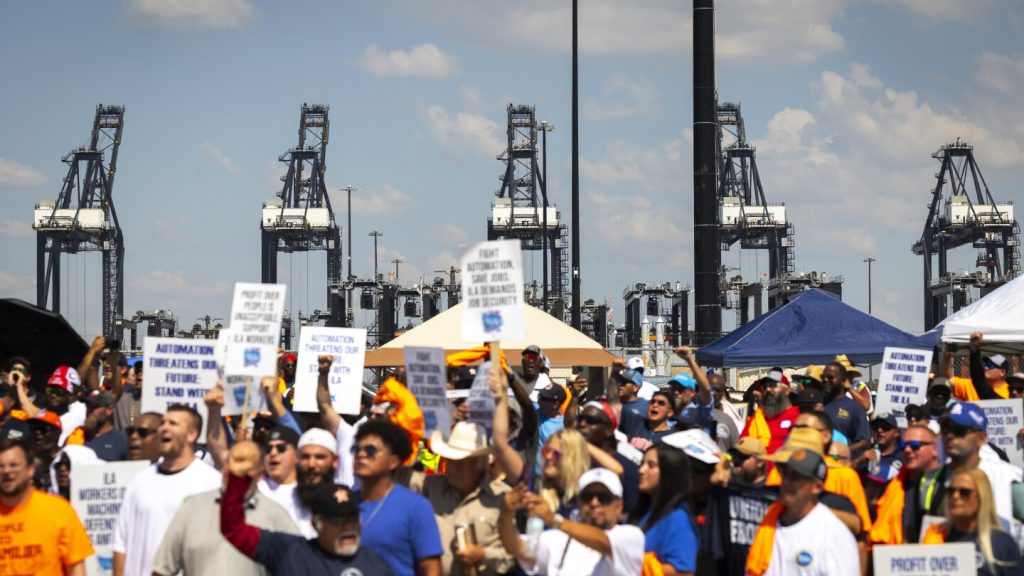Manufacturers and retailers are urging President Joe Biden to use the Taft-Hartley Act to suspend a strike by 45,000 dockworkers that has shut down 36 ports. The law allows for an 80-day cooling-off period for companies and unions to resolve their differences. Taft-Hartley was created in 1947 to limit union power and ban closed shops and secondary boycotts. It also required union leaders to declare they did not support the Communist Party. Presidents can intervene in strikes that may threaten national health and safety by appointing a board of inquiry and asking a federal court to suspend the strike.
Presidents have invoked Taft-Hartley 37 times in labor disputes. About half the time, parties resolved their differences, but in nine instances, strikes continued. Presidents have the authority to suspend strikes and initiate an 80-day cooling-off period. In 2002, President George W. Bush used Taft-Hartley during a West Coast ports lockout. Despite lobbying by manufacturers and retailers, President Biden has stated he will not use Taft-Hartley to intervene in the dockworkers’ strike, despite concerns about its impact on national disaster relief efforts.
Biden has emphasized the need for companies controlling ports to address the strike and negotiate with the workers. The strike has hindered efforts to provide emergency items for hurricane relief. If the strike continues and creates shortages that anger consumers, pressure could build on Biden to intervene. Organized labor strongly dislikes Taft-Hartley injunctions in the US, and Vice President Kamala Harris relies on labor support in her presidential campaign. Experts suggest that the election focus is on turnout, and Democrats cannot afford to alienate organized labor.
Despite the pressure from manufacturers and retailers, President Biden has chosen not to use the Taft-Hartley Act to suspend the dockworkers’ strike. The strike has affected operations at ports along the East and Gulf coasts and is impacting the distribution of emergency supplies for disaster relief. The Taft-Hartley Act grants the president the authority to intervene in labor disputes that could threaten national health and safety. The strike has raised concerns about potential shortages that could frustrate consumers and increase pressure on Biden to step in.
The history of the Taft-Hartley Act dates back to its introduction in 1947 by two Republicans to curb union power. The law prohibits closed shops and secondary boycotts, and it requires union leaders to declare their lack of Communist Party support. While presidents have invoked Taft-Hartley in the past to resolve labor disputes, Biden has chosen not to use it in the current dockworkers’ strike. The strike has implications for national disaster relief efforts and could lead to consumer dissatisfaction if shortages occur during the ongoing labor dispute. Labor unions in the US generally oppose Taft-Hartley injunctions, and the outcome of the strike could impact organized labor’s support in future political campaigns.


